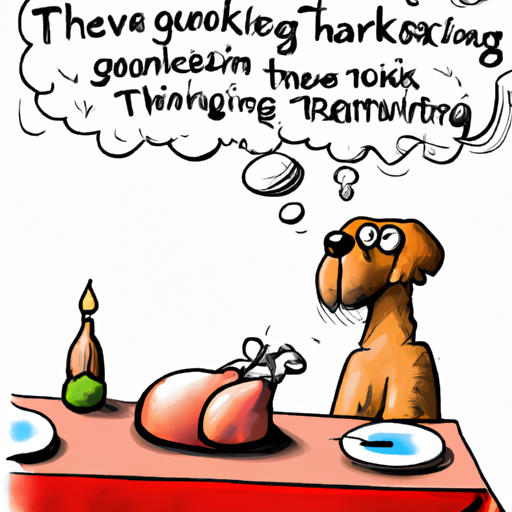As a dedicated caregiver to your four-legged companion, you’re likely familiar with the adage, “what’s good for the goose is good for the gander”. However, when it comes to feeding your furry friend, it’s not always the case. Let’s dive into why turkey, despite being a delicious delicacy for humans, may not be the best choice for our canine pals.
1. The Risk of Pancreatitis
Pancreatitis, a painful and potentially fatal condition in dogs, can be triggered by a diet high in fats. Unfortunately, turkey skin is rich in fats. While you may find the skin to be the tastiest part of the bird, it’s not something you should share with your dog.
- Pancreatic Overload: High-fat foods like turkey skin can cause the pancreas to overwork, leading to pancreatitis.
- Symptoms: Vomiting, abdominal pain, and diarrhea are common symptoms of pancreatitis in dogs.
2. Seasonings and Spices: The Hidden Dangers
Many seasonings and spices that we love in our turkey dishes are toxic to dogs. The list includes onions, garlic, leeks, and chives, all of which can cause anemia in dogs.
| Toxic Seasonings | Symptoms in Dogs |
|---|---|
| Onions | Reddish urine, weakness, decreased appetite |
| Garlic | Drooling, nausea, oral irritation |
| Leeks | Abdominal pain, vomiting, diarrhea |
| Chives | Lethargy, high heart rate, panting |
3. Bones: A Choking Hazard
Turkey bones, especially when cooked, can easily splinter and pose a choking risk. They can also cause serious injuries to a dog’s mouth, throat, or digestive tract.
- Splintered Bones: Can lead to a blockage or tears in the digestive system.
- Choking Hazard: Small or sharp pieces can get lodged in your dog’s throat.
4. The Risk of Allergies
Like humans, dogs can be allergic to certain foods, including turkey. While food allergies in dogs are not common, they can cause uncomfortable symptoms like itching, swelling, and digestive issues.
5. Portion Size: Too Much of a Good Thing
Even if turkey meat is served without skin, spices, or bones, overfeeding can still cause problems. Too much of any food, including turkey, can lead to obesity and other health problems in dogs.
- Obesity: Can lead to heart disease, diabetes, and other health issues.
- Poor Nutrition: Overfeeding can unbalance your dog’s diet and lead to nutritional deficiencies.
Frequently Asked Questions
Can dogs eat turkey at all?
Yes, dogs can eat turkey, but it should be cooked, skinless, and unseasoned. Always serve in moderation.
Are turkey bones ever safe for dogs?
No, turkey bones can splinter and pose a choking risk or cause injury to your dog’s digestive tract.
What should I do if my dog eats turkey skin or bones?
If your dog eats turkey skin or bones, monitor for signs of distress like vomiting or discomfort. In case of any unusual behavior, contact your vet immediately.
What are some dog-safe alternatives to turkey?
Chicken, fish, and certain cuts of pork can be safe and healthy alternatives to turkey.
How can I include my dog in the Thanksgiving feast?
Consider preparing a special dog-safe meal or treat. Always consult with your vet for the best dietary advice for your pet.



